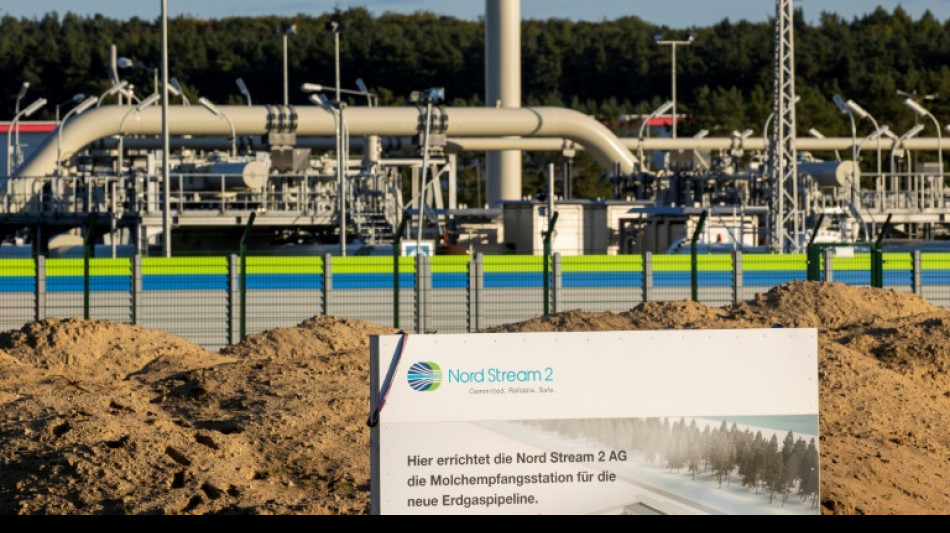
-
 Climate campaigners praise a cool pope
Climate campaigners praise a cool pope
-
As world mourns, cardinals prepare pope's funeral
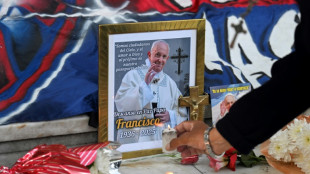
-
 US to impose new duties on solar imports from Southeast Asia
US to impose new duties on solar imports from Southeast Asia
-
Draft NZ law seeks 'biological' definition of man, woman
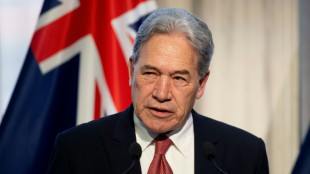
-
 Auto Shanghai to showcase electric competition at sector's new frontier
Auto Shanghai to showcase electric competition at sector's new frontier
-
Tentative tree planting 'decades overdue' in sweltering Athens

-
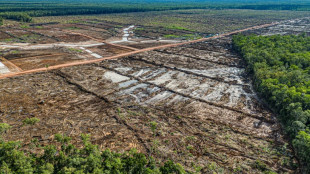 Indonesia food plan risks 'world's largest' deforestation
Indonesia food plan risks 'world's largest' deforestation
-
Gold hits record, stocks slip as Trump fuels Fed fears
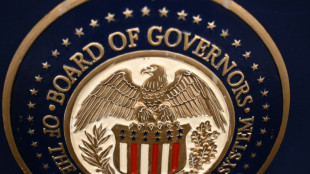
-
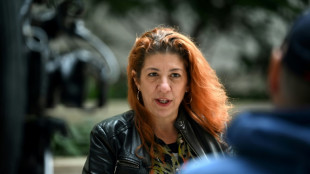 Trump helps enflame anti-LGBTQ feeling from Hungary to Romania
Trump helps enflame anti-LGBTQ feeling from Hungary to Romania
-
Woe is the pinata, a casualty of Trump trade war
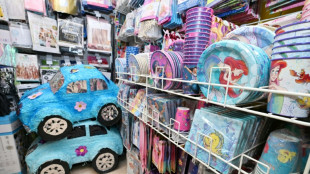
-
 'Like orphans': Argentina mourns loss of papal son
'Like orphans': Argentina mourns loss of papal son
-
Trump tariffs torch chances of meeting with China's Xi

-
 X rival Bluesky adds blue checks for trusted accounts
X rival Bluesky adds blue checks for trusted accounts
-
China to launch new crewed mission into space this week

-
 Morocco volunteers on Sahara clean-up mission
Morocco volunteers on Sahara clean-up mission
-
Latin America fondly farewells its first pontiff

-
 'I wanted it to work': Ukrainians disappointed by Easter truce
'I wanted it to work': Ukrainians disappointed by Easter truce
-
Harvard sues Trump over US federal funding cuts

-
 'One isn't born a saint': School nuns remember Pope Francis as a boy
'One isn't born a saint': School nuns remember Pope Francis as a boy
-
Battling Forest see off Spurs to boost Champions League hopes

-
 'I don't miss tennis' says Nadal
'I don't miss tennis' says Nadal
-
Biles 'not so sure' about competing at Los Angeles Olympics

-
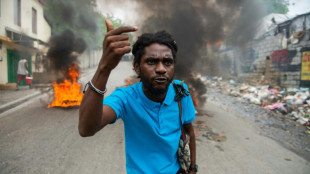 Gang-ravaged Haiti nearing 'point of no return', UN warns
Gang-ravaged Haiti nearing 'point of no return', UN warns
-
US assets slump again as Trump sharpens attack on Fed chief
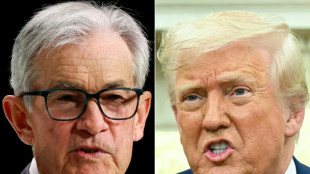
-
 Forest see off Spurs to boost Champions League hopes
Forest see off Spurs to boost Champions League hopes
-
Trump says Pope Francis 'loved the world,' will attend funeral
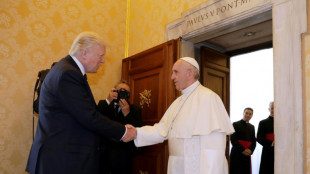
-
 Oscar voters required to view all films before casting ballots
Oscar voters required to view all films before casting ballots
-
Bucks' Lillard upgraded to 'questionable' for game 2 v Pacers

-
 Duplantis and Biles win Laureus World Sports Awards
Duplantis and Biles win Laureus World Sports Awards
-
US urges curb of Google's search dominance as AI looms

-
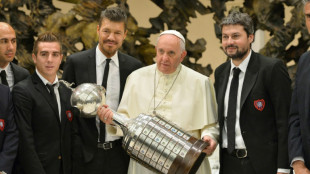 The Pope with 'two left feet' who loved the 'beautiful game'
The Pope with 'two left feet' who loved the 'beautiful game'
-
With Pope Francis death, Trump loses top moral critic
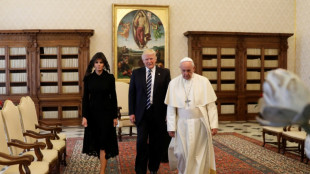
-
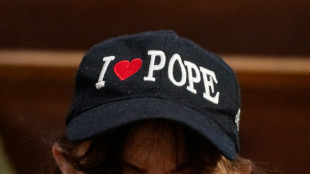 Mourning Americans contrast Trump approach to late Pope Francis
Mourning Americans contrast Trump approach to late Pope Francis
-
Leeds and Burnley promoted to Premier League

-
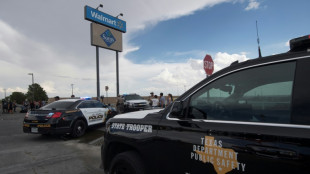 Racist gunman jailed for life over US supermarket massacre
Racist gunman jailed for life over US supermarket massacre
-
Trump backs Pentagon chief despite new Signal chat scandal
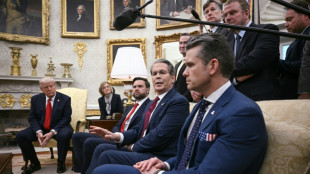
-
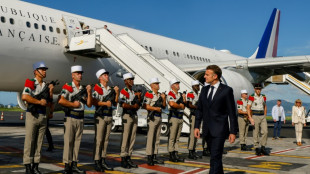 Macron vows to step up reconstruction in cyclone-hit Mayotte
Macron vows to step up reconstruction in cyclone-hit Mayotte
-
Gill, Sudharsan help toppers Gujarat boss Kolkata in IPL

-
 Messi, San Lorenzo bid farewell to football fan Pope Francis
Messi, San Lorenzo bid farewell to football fan Pope Francis
-
Leeds on brink of Premier League promotion after smashing Stoke

-
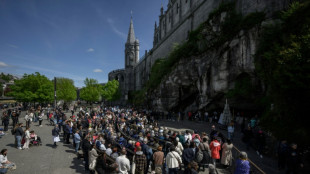 In Lourdes, Catholic pilgrims mourn the 'pope of the poor'
In Lourdes, Catholic pilgrims mourn the 'pope of the poor'
-
Korir wins men's Boston Marathon, Lokedi upstages Obiri

-
 China's CATL launches new EV sodium battery
China's CATL launches new EV sodium battery
-
Korir wins Boston Marathon, Lokedi upstages Obiri

-
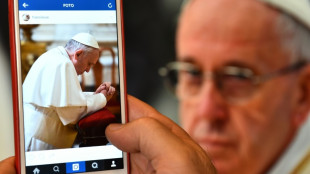 Francis, a pope for the internet age
Francis, a pope for the internet age
-
Iraq's top Shiite cleric says Pope Francis sought peace

-
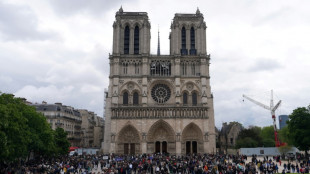 Mourners flock to world's churches to grieve Pope Francis
Mourners flock to world's churches to grieve Pope Francis
-
Trump says Pope Francis 'loved the world'
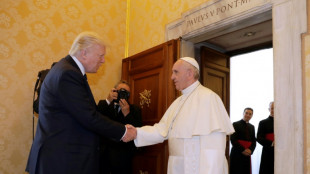
-
 Sri Lanka recalls Pope Francis' compassion on Easter bombing anniversary
Sri Lanka recalls Pope Francis' compassion on Easter bombing anniversary
-
Pope Francis inspired IOC president Bach to create refugee team


Nord Stream 2 pipeline: key card in West's hand against Russia
The Nord Stream 2 pipeline, set to double natural gas supplies from Russia to Germany, has become a key bargaining chip for the West in its bid to stop Moscow from invading Ukraine.
The pipeline, which Germany has defiantly pursued despite criticism from the United States and Eastern Europe, was completed last year but still requires regulatory approval.
Germany has now given a clear warning that it will not allow Nord Stream 2 to begin operating if Russia invades Ukraine, despite a severe energy crisis that has sent gas prices soaring in Europe.
Here is a look at the history of the pipeline, which critics say will increase Europe's dependence on Russian gas and Ukraine has described as a "geopolitical weapon".
- What is it? -
Running from Russia's Baltic coast to northeastern Germany, the 1,200-kilometre (745-mile) underwater Nord Stream 2 follows the same route as Nord Stream 1, which was completed over a decade ago.
Like its twin, Nord Stream 2 will be able to pipe 55 billion cubic metres of gas per year from Russia to Europe, increasing the continent's access to relatively cheap natural gas at a time of falling domestic production.
Russian giant Gazprom has a majority stake in the 10-billion-euro ($12 billion) project. Germany's Uniper and Wintershall, France's Engie, the Anglo-Dutch firm Shell and Austria's OMV are also involved.
The pipeline was completed in September 2021 but German authorities in November suspended the approval process, saying it needed to first become compliant with German law.
The operating company behind the project, Swiss-based Nord Stream 2 AG, said this week it had founded a German subsidiary as it presses ahead despite the rising diplomatic tensions.
- Why is it controversial? -
Nord Stream 2 bypasses Ukraine's pipeline infrastructure, depriving the country of around a billion euros annually in gas transit fees and, Kyiv fears, removing a key check on potential Russian aggression.
Ukraine, in conflict with Russia since Moscow's 2014 annexation of Crimea, also believes Nord Stream 2 will be used by Russia to exert political pressure.
In past disputes with Russia, Ukraine has had its gas supply cut off several times.
The US shares those concerns. As do several European nations, particularly Poland and eastern European countries wary of becoming too reliant on Moscow for energy security.
Analysts meanwhile disagree about Nord Stream's economic and environmental benefits.
A 2018 report by German think-tank DIW said the project was unnecessary and based on forecasts that "significantly overestimate natural gas demand in Germany and Europe".
- Why was Germany so keen? -
Europe's top economy imports around 40 percent of its gas from Russia and believes the pipeline has a role to play in the transition away from coal and nuclear energy.
Former chancellor Gerhard Schroeder serves as chairman of the Nord Stream's shareholders committee.
The previous German government under Angela Merkel deflected calls to abandon the project even as tensions rose with Russia over spying allegations and the poisoning and jailing of Kremlin critic Alexei Navalny.
Now, with energy prices soaring across Europe -- and Russia allegedly restricting existing gas supplies to put pressure on the West -- stopping Nord Stream 2 looks like a bigger risk than ever.
- What do other countries think? -
US President Joe Biden objects to Nord Stream 2, calling it a bad deal for Europe and a security risk.
US sanctions on Russian vessels laying the pipeline had long succeeded in delaying Nord Stream 2, angering Germany.
But Biden, eager to rebuild transatlantic ties after Donald Trump, last year unexpectedly waived sanctions on the Russian-controlled company behind the project.
Ukrainian President Volodymyr Zelensky, meanwhile, has long insisted that Nord Stream 2 poses a serious global security threat.
"We view this project exclusively through the prism of security and consider it a dangerous geopolitical weapon of the Kremlin," he said last year.
- What's the latest? -
With tensions with Moscow soaring over Russia's deployment of troops on the Ukraine border, the new German government under Chancellor Olaf Scholz, from the centre-left Social Democrats, has finally brought a change in Germany's stance on Nord Stream 2.
Scholz warned on his first day in office that there would be "consequences" for the pipeline if Russia makes a move on Ukraine.
This week, German Foreign Minister Annalena Baerbock told parliament that her government was "working on a strong package of sanctions" alongside allies that would include Nord Stream 2.
In Washington, a top official also voiced confidence that an invasion would stop Germany from activating the multibillion-dollar project.
"If Russia invades Ukraine, one way or another, Nord Stream 2 will not move forward," said Victoria Nuland, the undersecretary of state for political affairs.
M.Furrer--BTB
